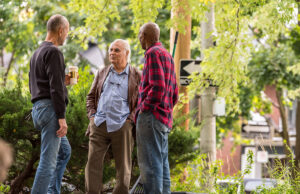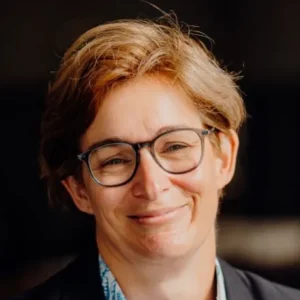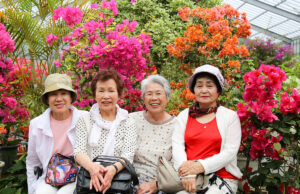On 24 February 2022, over 50 participants from around the globe joined together to participate in a discussion focused on “Ageism in Ageing Services.” The webinar was moderated by Kirsten Jacobs, Senior Director of Shared Learning Initiatives at LeadingAge. She was joined by two panelists, Tracey Gendron, PhD, MS, Chair and Associate Professor, Department of Gerontology at Virginia Commonwealth University, and Executive Director at the Virginia Center on Aging and Ingrid Eyers, PhD, MSc, Affiliate Professor for the Networking and Intergenerational Advisor for the Global Center on Ageing at University of Maryland, Baltimore County.
Ageism has become a normal part of our world; it is everywhere, so we no longer see it. As Kirsten Jacobs noted, “Most of us have experienced ageism. It applies to all of us because we are all aging.”
There are layers we need to unmask about how ageism impacts us all. Dr. Gendron has been working toward uncovering some of these layers. As she stated during her presentation, “Ageism is complicated because aging is complicated.” The idea of generations leads to ageism because it assumes that people experience their generation in the same way. It pigeonholes people and assumes how people of a certain age should act and ignores the intersectionality of so many other factors. Further, when we conflate aging with physical age, it becomes negative. People with a positive view of aging can live seven and a half years longer than those with a negative view. Age is about growth and opportunity. Dr. Gendron suggested that we use the term “Elderhood” as part of an anti-ageism strategy. Once we recognize that bias and ageist language is everywhere, we can create opportunities to reform and change it. Whatever way we chose to address older people, or elders, we should take a person-centered approach.
Dr. Eyers looked at ageism in care homes both from the perspective of the older person living there and the care staff and addressed the relationship between the two. She compared Germany and England. Using her personal history as a care home manager, she shared what she experienced as “standard practice” was not right and has tirelessly worked to bring about change. She noted that the COVID pandemic highlighted the paternalistic approach of government policies toward aged care. She encouraged providers to rethink their care giving practices and examine how care is provided through an anti-ageist lens.
With gratitude to our speakers Kirsten Jacobs, Tracey Gendron, and Ingrid Eyers, and our sponsor, Aging in America. Please join us on 24 March 2022 for our next webinar.





